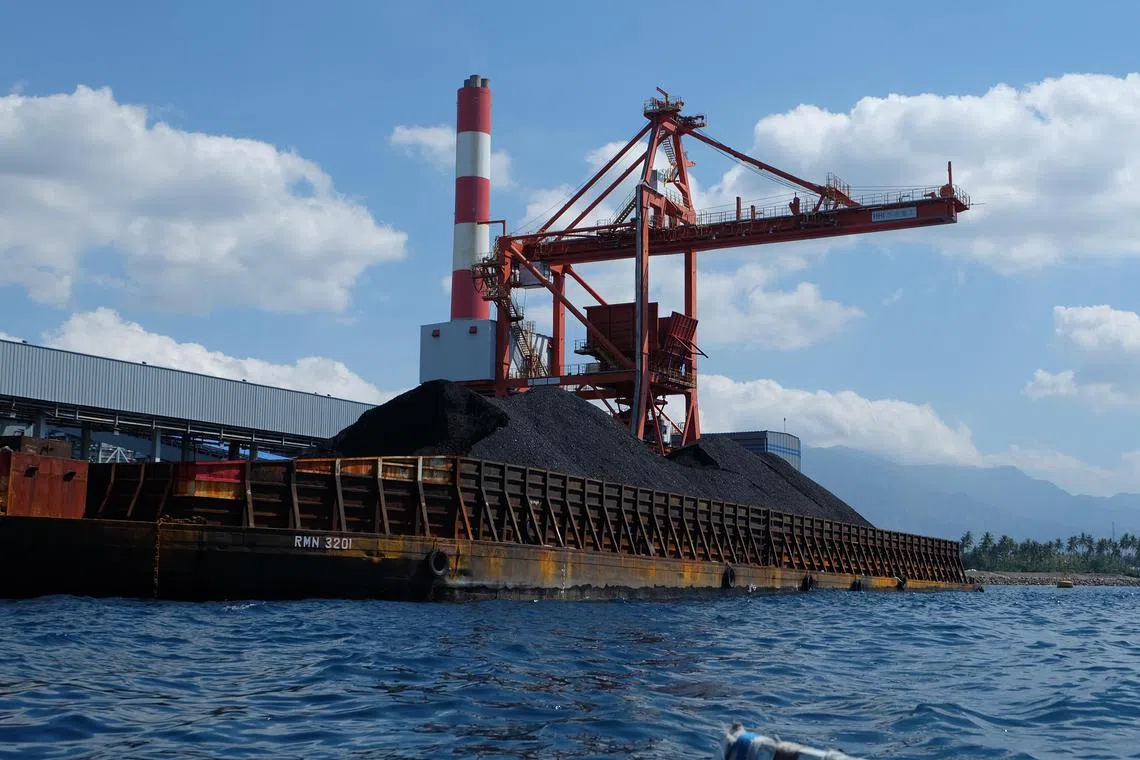Indonesia to launch carbon exchange in September
Sign up now: Get insights on Asia's fast-moving developments

Companies in power generation will become the first to trade in the exchange, while those in other sectors are under assessment to get onboard.
PHOTO: ST FILE
JAKARTA – Indonesia is poised to launch its carbon exchange in September, with power generation companies the first to trade on it.
Indonesia Stock Exchange (BEI) is set to operate the exchange that will be supervised by its financial regulator, the Financial Services Authority, and the Environment and Forestry Ministry, officials said.
Initially, power producers that operate coal power plants and have a level of emissions lower than what is set by the government can sell emission allowances to their less efficient peers, the Environment and Forestry Ministry’s director for the mobilisation of sectoral and regional resources, Dr Ignatius Wahyu Marjaka, told The Straits Times.
Indonesia, South-east Asia’s largest economy and the world’s eighth-largest greenhouse emitter, in February launched the first phase of mandatory carbon trading
More than half of the power generation in the country is sourced from coal.
Carbon trading is a market-based system that seeks to slash greenhouse gases that cause climate change. Companies or individuals can buy carbon credits from entities that reduce or remove greenhouse gas emissions, the majority of which comes from carbon dioxide, to compensate for their own emissions.
Dr Wahyu said: “We are also looking into companies in the forestry sector that are quite capable and can meet the requirements to take part in the exchange in September.
“We are exploring some others... potentially steel, cement, fertiliser companies. The question is whether they are ready to enter the exchange in the first phase of the trading.”
Forestry and similar sectors linked to land use, together with energy and transportation, make up 97 per cent of Indonesia’s pledge to reduce emissions and adapt to climate change. Late last year, the government enhanced its target to cut emissions by 2030 by 31.89 per cent
Dr Wahyu said that the government is also identifying entities that contributed to removing 577 million tonnes of carbon dioxide equivalent (CO2e) verified under the United Nations Framework Convention on Climate Change between 2018 and 2020. The current identification is geared towards those accounting for 100 million tonnes CO2e of the overall figure, he said.
Numerous emission-reduction efforts that fight deforestation and forest degradation as well as programmes to boost Indonesia’s forest carbon stocks have enabled the country to receive result-based payments from various sources, including governments and multilateral climate finance facilities.
“These entities will have two options – joining the exchange, or doing their own trading with buyers if they already have contracts with them,” he said.
All entities taking part in carbon trading activities – both within and outside the exchange – will have to be registered with the national registry system in order to acquire emission-reduction permits.
Dr Wahyu underlined that Indonesia’s system welcomes entities with carbon credits certified under internationally accepted standards, such as Verra and Gold Standard, and when necessary, these entities will face demands to make adjustments to ensure compatibility.
Dr Edo Mahendra, special adviser on carbon trading to the Coordinating Minister for Maritime Affairs and Investment, told ST that while the initial stage of Indonesia’s exchange will involve at least one sector, it seeks to adopt best practices applied in other exchanges worldwide.
“We aim to create one market, one price, (with) multiple sectors,” he said.
To guarantee the traceability of the carbon allowances and credits traded in the exchange, Indonesia will use blockchain technology, he added.
Experts said that to allow the exchange to work, the government must soon put a cap on how much other sectors outside power generation, particularly the forestry, agriculture and energy-intensive industries, can emit.
Climate-change expert from Bogor Agricultural University, Professor Rizaldi Boer, told ST that the carbon emission limits are especially needed for companies that have significant greenhouse gas emissions, such as those running oil palm plantations.
“With the cap, they will be pushed into adopting good practices in managing peat lands and water systems,” he said.
Mr Fabby Tumiwa, executive director of the Jakarta-based think-tank Institute for Essential Services Reform, agreed, saying that caps should be prioritised for energy-intensive industries such as steel.
He added that the government also needs to apply carbon tax for all sectors sooner than the planned 2025.



